 "Is it just me, or is it getting crazier out there?"
"Is it just me, or is it getting crazier out there?"
In Gotham City, mentally-troubled comedian Arthur Fleck is disregarded and mistreated by society. He then embarks on a downward spiral of revolution and bloody crime. This path brings him face-to-face with his alter-ego: "The Joker".
Director Todd Phillips, known for his comedy outings such as The Hangover and Due Date, gives us a portrayal and alternative version involving the famous, iconic character from DC comics. It is also a story about a man with problems whose life spirals into a crazed mania and transformation caused by inner and external forces. While past versions of the Joker have embodied a devious streak of driven intent, this one begins with an abused clown who is a lost soul in a city that is falling apart. A journey that takes us on this imagined yet realistic tragic life, already in a bad state at the beginning, spiralling into the rocky path of self destruction caused partly from a failing system unable to provide help adequately.
Film making, effects, cinematography:
The style and visualisation experience is very much shot in a similar fashion which takes us back to the films from Scorsese... Nods to Taxi Driver and King of Comedy are present and Todd Phillips does his best to let the setting and lead do their work on the audience. The cinematography from Lawrence Sher is crisp, clear and smooth while Gotham City feels run down, dirty, crazed, archaic, poor... On the edge of oblivion seen through this lens of clarity. In the same way the lead character is effected by his turbulent and hard settings. Joker doesn't need any fancy effects as the story and plot are the main vital ingredients needed to cause a stir. That grimy feel of the city echoes and screams the same song that Taxi Driver embodied where the city is stuck in a constant quagmire of moral decay.
Story, acting, character development:
Arthur Fleck, played by transformative Joaquin Phoenix, is a failing clown who lives with his mother Penny Fleck who he also looks after and a mentally unwell man who sees a social worker every week plus takes several medications... When he first appears he is beaten up by some teenagers who break his sign which he was using for his work. A very sad life indeed. He writes confused and badly spelt jokes in his notebook and idolises a talk-show host Murray Franklin, who later ridicules and makes fun out of him. Then one of his co-workers gives him a gun to protect himself with which also goes wrong when he drops it in a hospital when entertaining unwell children. The story often seems like one big line of events that just get worse and worse for Arthur sending him further into insanity, changing him into the Joker personality, who dances and is violent towards those who have wronged him. Murray calls him a Joker and that is what he chooses to become. Completely shaped by external forces that damage him even more than what he already he is. There is also the element of what is real? in a similar light to American Psycho which suggests visual schizophrenia: Arthur's relationship and romance with his neighbour Sophie Dumond, which I thought was one positive in Arthur's life, turns out to be not real and all in his head. Brings to mind The Killing Joke by Alan Moore where the Joker says if he has a past he prefers it to be multiple choice. Everything in his life seems at an abysmal low.
His laugh is really haunting and quite disturbing while he talks in such an unusual way that it is quite easy for most people around him to misunderstand and turn him into a sort of outcast. Yet he still starts with a purpose that comprises of trying to make others laugh and make them happy while at the same time not being able to make himself better. This is a tragic story of suffering, isolation and mounting psychosis which turns out to be a temporary distraction from his delusions and abuse.
This Joker film shows us a man whose world gets turned upside down even more when he finds out he is an orphan and he ends up killing three men in the subway who were attacking him and previously bullying some other random woman. Also the demise of his mother and idol see the man turn from abused into a abuser. A confident, crazed, energised dancing, nihilistic clown: Joker. He isn't even political but ends up being a symbol for the downtrodden struggling in poverty and those resigned to outcasts by the society around them. There is also the whole aspect with the Waynes that Fleck has which shows him searching for the truth behind elements fractured in his life such as family: It is somewhat eerie when he talks to a young Bruce Wayne and also painful when he confronts Thomas Wayne who ends up trying to be the saviour of the city which ultimately backfires due to his rich background separating him from the everyday citizen.
Joaquin also looks very thin, very skeletal in the film, his physical body hungry for nourishment just like he is hungry for acknowledgement and recognition with his stand up comedy. Sometimes wondering if he exists and also suicidal, which reminded me of what Nietzsche once said — ‘The thought of suicide is a great consolation: by means of it one gets through many a dark night.’ With all the pain and suffering who wouldn't imagine some sort of escape in such an extreme fashion? Arthur has such a tortured existence in the film no wonder he dreams about ending it at times but goes on trying his best to survive somehow even if things keep getting worse in the film.
This film and story also works well as a study, as mentioned before, revolving around mental health and isolation: Arthur is suffering from visual schizophrenia, vivid bouts of hallucinations, an extreme laughing disorder, extreme depression and on the road to a manic psychosis state when he stops his seven different medications. He begins as a victim of violence and a series of traumatic revelations cause more strain on an already troubled individual turning him into the very thing that caused his descent into chaos. You get what you deserve ends up being prophetic in this eye for an eye dance.
Music, score, sound:
The score by Hildur Guðnadóttir is haunting and a character in itself giving the film a remoreseful, sad and chilling vibe. The scene where Joker is in the lift and dancing down the stairs sends shivers up the spine in an entrancing, hypnotic, manic state. The transformation of Arthur into this new version of the dancing Joker shows an almost mythical trickster, a whirlwind of mania and madness, while still a prisoner to his newly formed state he isn't being bullied or oppressed anymore. Yet even when the haunting music plays and he is slowly doing a saddened dance in the mirror, both visual and audiotry, help give the audience a startling and shocking resonance to this unwell man. A very beautiful and emotional soundtrack.
Summary and conclusion:
Overall, Joker gives audiences a visceral and raw experience... We have had in the past the flamboyant and charismatic Jack Nicholson one, the incredible and masterful Heath Ledger, Mark Hamill as the animated version, and Cesar Romero in the 60s series, plus Jared Leto in Suicide Squad... All played Joker in their own unique and brilliant way. Jaoquin Phoenix as Arthur Fleck/Joker gives us a very awkward, skeletally thin, troubled take on the famous character from DC comics... This one particularly seems mentally troubled and scarily realistic. At times not even playing into the typical roles of hero or villian but a man who becomes more and more damaged due to bad things constantly happening to him and this makes him snap: He kills those that have hurt him and that should be disturbing but also conflicting because he shouldn't be treated this way although the solution is far from being palpatable. The whole nature versus nurture comes into play which partially explains the mental state and actions of such an individual. We could put all the blame on him but it also seems the failing, underfunded system of Gotham depicted is to blame as well. That laugh, voice and look really bring to life a tragic story of a comical clown/comedian in a delusional, isolated and negative state. If he had help sooner would he have spiralled that far out of control? Probably not. Do people like this exist in real life? Yes, and perhaps in some ways Joker is a film for people going through extreme situations and hard times with an illness, a warning of what not to do and what could happen when people are pushed too far. I felt kind of sad afterwards yet inspired after seeing Joker because there are so many psychological layers and themes to discuss in a film and story like this, most having something to say or relate to. We got the film we deserved that's for sure.
"When you bring me out, can you introduce me as Joker?"
 Login
Login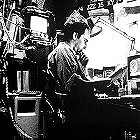

 Message
Message
 Home
Home 24 Lists
24 Lists 448 Reviews
448 Reviews Collections
Collections






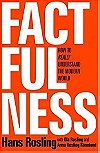

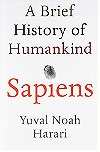

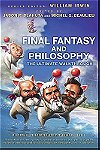
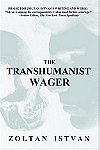
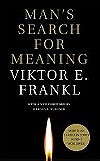

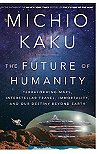
























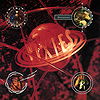 100 Best Albums Of 90's (With Favourite Tracks)
100 Best Albums Of 90's (With Favourite Tracks)


























 My Places lists
My Places lists My Generic Bird Lists Collection
My Generic Bird Lists Collection Favorite Images of Ants #1
Favorite Images of Ants #1
















Just over here making movies, reviewing movies, doing Uni and working. Good to see you around these parts again :)
www.listal.com/list/-5672
and some of my other lists :)
www.listal.com/list/50-most-memorable-stylish
www.listal.com/list/miss-universe-2016-national-costume
www.listal.com/list/fhm-100-sexiest-women-world-5873
www.listal.com/list/modern-disney-princess-prettybitch
www.listal.com/list/my-favorite-characters-prettybitch
www.listal.com/list/fhm-100-sexiest-women-world-prettybitch
www.listal.com/list/105-most-powerful-images-ever
www.listal.com/list/2015-met-gala
www.listal.com/list/my-most-rated-images-doutzen
www.listal.com/list/42nd-annual-daytime-emmy-awards
www.listal.com/list/2015-radio-disney-music-awards
www.listal.com/list/101st-annual-white-house-correspondents
www.listal.com/list/22nd-annual-race-erase-ms
www.listal.com/list/want-you-back-victorias-secretunderrated
As always, thanks for ALL the votes and comments!
www.listal.com/list/miss-universe-2015national-costume-show
www.listal.com/list/2015-amfar-new-york-gala
www.listal.com/list/mystical-bridges-around-world
www.listal.com/list/2015-goya-cinema-awards
As always, thanks for ALL the votes and comments!
www.listal.com/list/2011-vanity-fair-oscar-party
www.listal.com/list/2010-academy-awards
www.listal.com/list/teen-choice-awards-2009
www.listal.com/list/elie-saab-fall-2013
www.listal.com/list/68th-annual-golden-globe-awards-prettybitch
As always, thanks for ALL the votes and comments!
www.listal.com/list/nstyle-golden-globes-event-fashion
www.listal.com/list/alexander-mcqueen-springsummer-2010
www.listal.com/list/arlenis-sosa
www.listal.com/list/atelier-versace-fw-1213
www.listal.com/list/25th-annual-kids-choice-awards
www.listal.com/list/mtv-europe-music-awards-2012
www.listal.com/list/disney-abc-2013-winter-tca
www.listal.com/list/carola-remer
www.listal.com/list/elie-saab-fw-1314
www.listal.com/list/2013-film-independent-spirit-awards
As always, thanks for ALL the votes and comments
www.listal.com/list/26th-annual-kids-choice
www.listal.com/list/21st-annual-elton-john-aids
www.listal.com/list/teen-choice-awards-2010
www.listal.com/list/elie-saab-haute-couture-ss
As always, thanks for ALL the votes and comments
Vanity Fair Oscar Party-2013
Thanks n Take Care !!!
www.listal.com/list/movies-made-me-furious
www.listal.com/list/19th-annual-screen-actors-guild
As always, thanks for ALL the votes and comments!
www.listal.com/list/halloween-celebrates-costumes-2012
www.listal.com/list/year-bazaar-covers-2012
www.listal.com/list/nian-epic-love
As always, thanks for ALL the votes and comments